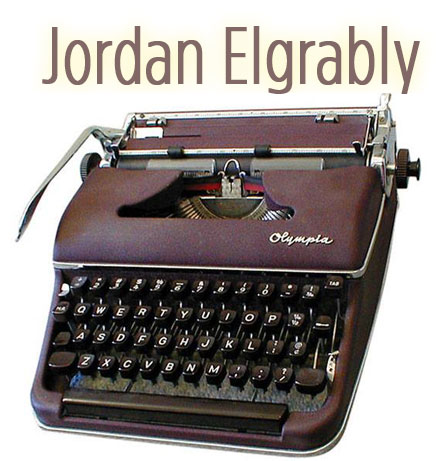Shall we celebrate our progress or commiserate as public enemy number one?
2 Aug., 2011 | Levantine Review | By Jordan Elgrably
As we near the 10th anniversary of 9/11, there is both troubling and positive news for Arabs/Muslims living in western countries. The question is, how much progress have we made in our quest for equality and freedom from racial and religious profiling?
Flowers on the island near Oslo: for shooting victims of accused anti-Muslim shooter Anders Behring Breivik
We have on the negative side of the spectrum the anti-Muslim motivations behind the grisly Norway massacre; Peter King's Muslim hearings on Capitol Hill; and a recent survey by U.S. academics that indicates Americans are more afraid of Muslims these days, after the death of Bin Laden, than they were in the years after the attacks on the World Trade Towers in New York.
On the positive side of the spectrum, it can be hip to be Arab/Muslim. Former attorney-cum-stand up comedian Dean Obeidallah, a secular Muslim, now not only tours the country with his various comedy shows, he's become a popular columnist with CNN online, opining on politics in Washington with his brand of subtle satire.
Attorney-cum-comedian Dean Obeidallah
Obeidallah and partner Negin Farsad are about to embark on a new comedy experience and documentary project, "The Muslims Are Coming"—a free comedy tour that will travel through the Deep South and the Midwest. Why free? "Because the goal of this tour," Obeidallah says, "is to truly meet people who are not already on our side...we are going to areas in the country...where there are few, if any, Muslims and where polls show Islamophobia is at its worst." (See TheMuslimsAreComing.com.)
In September, meanwhile, director/producer Rashid Ghazi is releasing his documentary, Fordson in theatres. Winner of a special jury prize at the 2011 Slamdance Film Festival, Fordson profiles a Dearborn, Michigan high school's primarily Arab/Muslim football team. The film zeroes in on four talented players as they gear up for their big senior year rivalry game during the last ten days of Ramadan; the story begins on September 11, 2009 and concludes at the end of Ramadan ten days later. Ghazi's doc will screen in a dozen metropolitan regions across the U.S., including Orange County and Covina, California, premiering on September 9.
In November, the TLC cable network launches a new reality TV show that will explore the daily lives of five Muslim families in Dearborn. "All-American Muslim" according to TLC general manager Amy Winter, will provide an intimate look at their customs and celebrations, "as well as the misconceptions, conflicts and differences they face outside-and within-their own community." Muslims on American reality TV? We're a far cry from the controversial stereotypes that caused "24" showrunner Howard Gordon considerable grief, before he began dialoguing with Muslim activist Dalia Mogahed, and diversified the show's Muslim characters (now off the air, "24" endured from 2001 to 2010).
Also on the positive side, more Americans are watching Al Jazeera or reading/watching Al Jazeera English online than ever before, which indicates clearly that Arab/Muslim viewpoints are becoming more widespread than in the years prior to September 11, 2001. However, while the Doha-based news company just cut a deal with New York's Regional News Network and has become available in New York through local cable, AJ is still looking for an opportunity to broadcast in Southern California.
I would argue that the Arab/Muslim community has evolved significantly in the years since 9/11. There are now over a dozen Arab cultural centers around the country—not just the Arab American Museum in Dearborn (home to the nation's largest Arab community)—but in Boston, New York, Houston, Atlanta, San Francisco, Los Angeles and elsewhere. Moreover, the advocacy efforts of the Arab American Institute, the Council on American Islamic Relations and the Muslim Public Affairs Council have made all three of those organizations much more prominent on Capitol Hill. Likewise, Trita Parsi's Iranian advocacy group, the National Iranian American Council or NIAC, has grown exponentially—certainly the events of the 2009 "Green Movement" in Iran had a hand in such growth.
On the cultural front, the events of the Arab Spring led Robert De Niro's Tribeca Film Festival to feature several Arab movies this June. Middle Eastern screenwriters and directors have become a staple of the Sundance screenwriters lab each year, not to mention the consistent programming of the San Francisco Bay Area's Arab Film Festival. Of course, since the summer of 2001, the Levantine Cultural Center has been active in Southern California, offering hundreds of film, literary and performing arts programs that help shed light on the Middle East and North Africa, and our communities in diaspora.
Are we, then, taking three steps forward and one backward? Have the signposts of our progress as a diverse, educated community in the United States, been countered by the extreme actions of a few, and the bigotry of many?
The events of 9/11 horrified me as much as anyone, and I have been further dismayed by our wars and occupations in Iraq and Afghanistan. But as someone who perennially sees the glass as half-full, I believe that we are better off today than we were on September 10, 2001.
What do you think? Where do we stand, as Arab Americans, as Muslim Americans—as Americans period? Post your comments below





